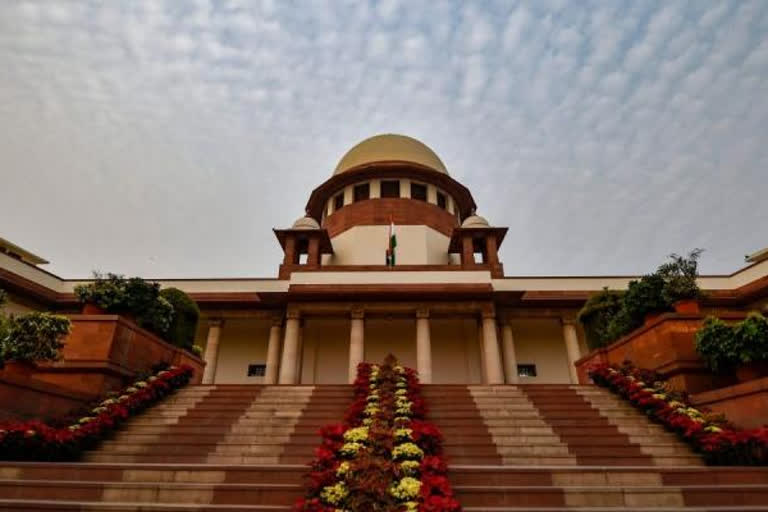New Delhi: The Supreme Court Monday granted protection from arrest for eight weeks to a man, accused of raping a woman on the false pretext of marriage, and asked whether a physical relationship between a couple who is living together as husband and wife could be called rape.
If a couple is living together as husband and wife, the husband may be a brutal man but can you call the act of sexual intercourse between them rape?, observed a bench headed by Chief Justice S A Bobde.
"Are you willing to marry her," was the question posed to a public servant, who is accused of repeatedly raping a minor girl but when the Supreme Court on Monday was told that he is already married he was asked to seek regular bail from the concerned court.
Read:| Can't allow sexual harassment cases to be swept under carpet: SC
"If you are willing to marry her then we can consider it, otherwise, you will go to jail, observed the bench adding We are not forcing you to marry," the court earlier maintained.
The bench, also comprising Justices A S Bopanna and V Ramasubramanian, observed this while hearing the pleas, including the one filed by the accused who has moved the apex court against the Allahabad High Court's April 2019 order which had refused to quash the FIR lodged against him at Gautam Budh Nagar district in Uttar Pradesh.
During the hearing conducted through video-conferencing, the counsel appearing for the complainant woman said that the accused had taken her consent by fraud and it was not free to consent.
The lawyer claimed that in 2014, the accused took her to a temple in Manali in Himachal Pradesh where they performed marriage rituals.
Making a false promise of marriage is wrong. Even a woman should not make such a promise and then break off, the bench said.
Senior advocate Vibha Datta Makhija, appearing for the petitioner, said that the accused and the woman were in a live-in relation for two years and later she lodged an FIR alleging rape on the false promise of marriage.
Read:| Mental cruelty ground for divorce, says SC
Makhija said that offence under section 376 (rape) of the Indian Penal Code (IPC) has been added in the FIR to harass the man.
The counsel appearing for the complainant woman alleged that the man had pretended to be her husband but later, he married someone else.
He claimed that the woman was physically abused by the accused and referred to her medical records.
Makhija argued that this is a habitual act of the complainant as she had done this with two other people in her office.
You know what the courts have said about calling rape victims habitual, the bench told Makhija, adding, We suggest that you withdraw this and apply for discharge after some evidence is led.
Vibha Datta Makhija, senior counsel appearing on behalf of the petitioners seeks permission to withdraw the special leave petition with liberty to apply for discharge after some evidence are led. Permission is granted, the bench said in its order.
However, there shall be a stay of the arrest of the petitioners for eight weeks. Thereafter, the trial court will decide the question of the liberty of the petitioners. The special leave petition is dismissed as withdrawn with liberty as prayed for, it said.
Read:| Court issues notice on social media privacy policies
The counsel appearing for the state of Uttar Pradesh said that one of the petitioners, who has also filed a separate plea in the apex court in the matter, has not been charge-sheeted by the police in the case.
Given this, Vibha Datta Makhija, senior counsel appearing on behalf of the petitioner seeks permission to withdraw the special leave petition. Permission is granted. The special leave petition is dismissed as withdrawn, the bench said.
The high court had refused to quash the FIR in the case saying, From the perusal of the FIR, prim
PTI



